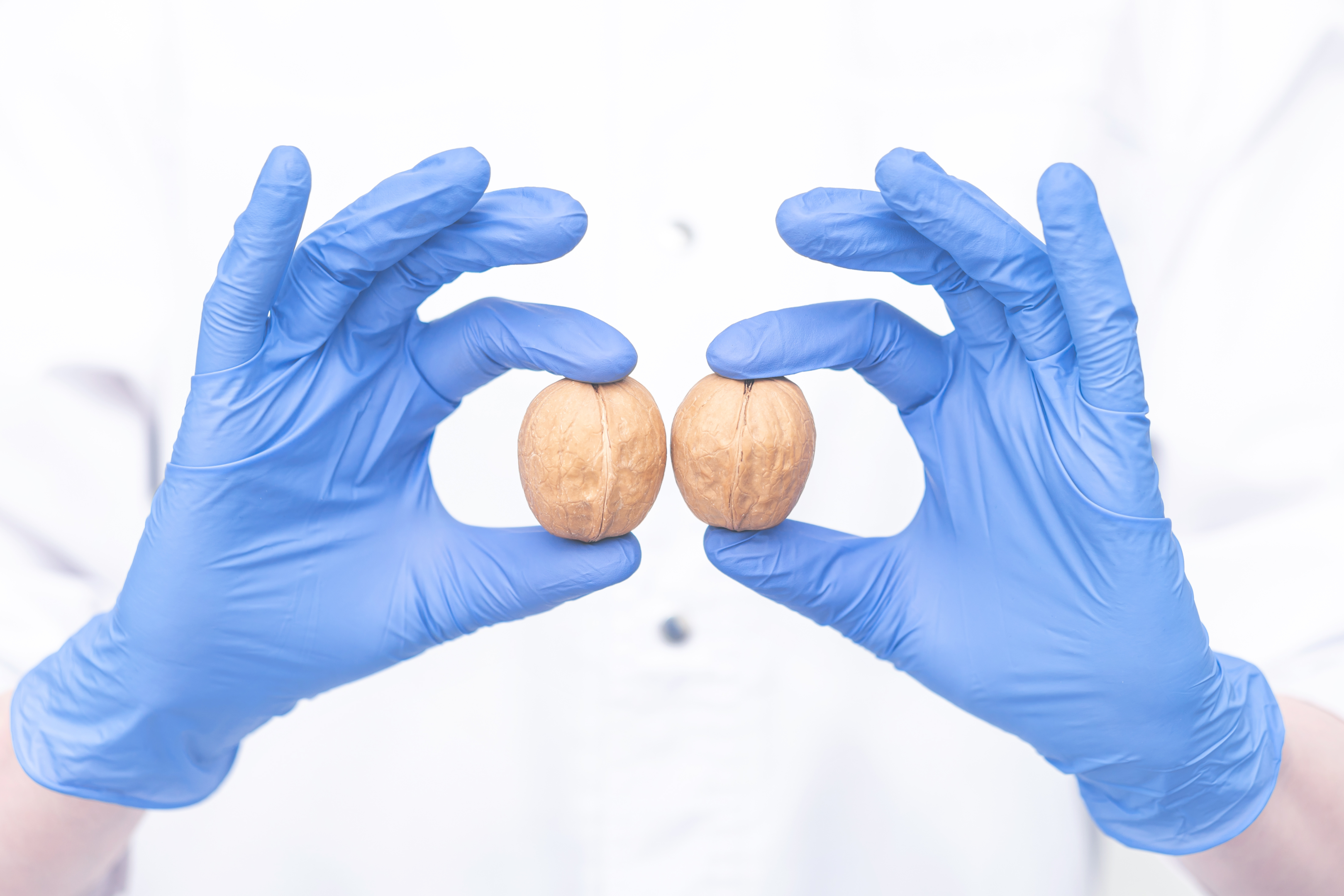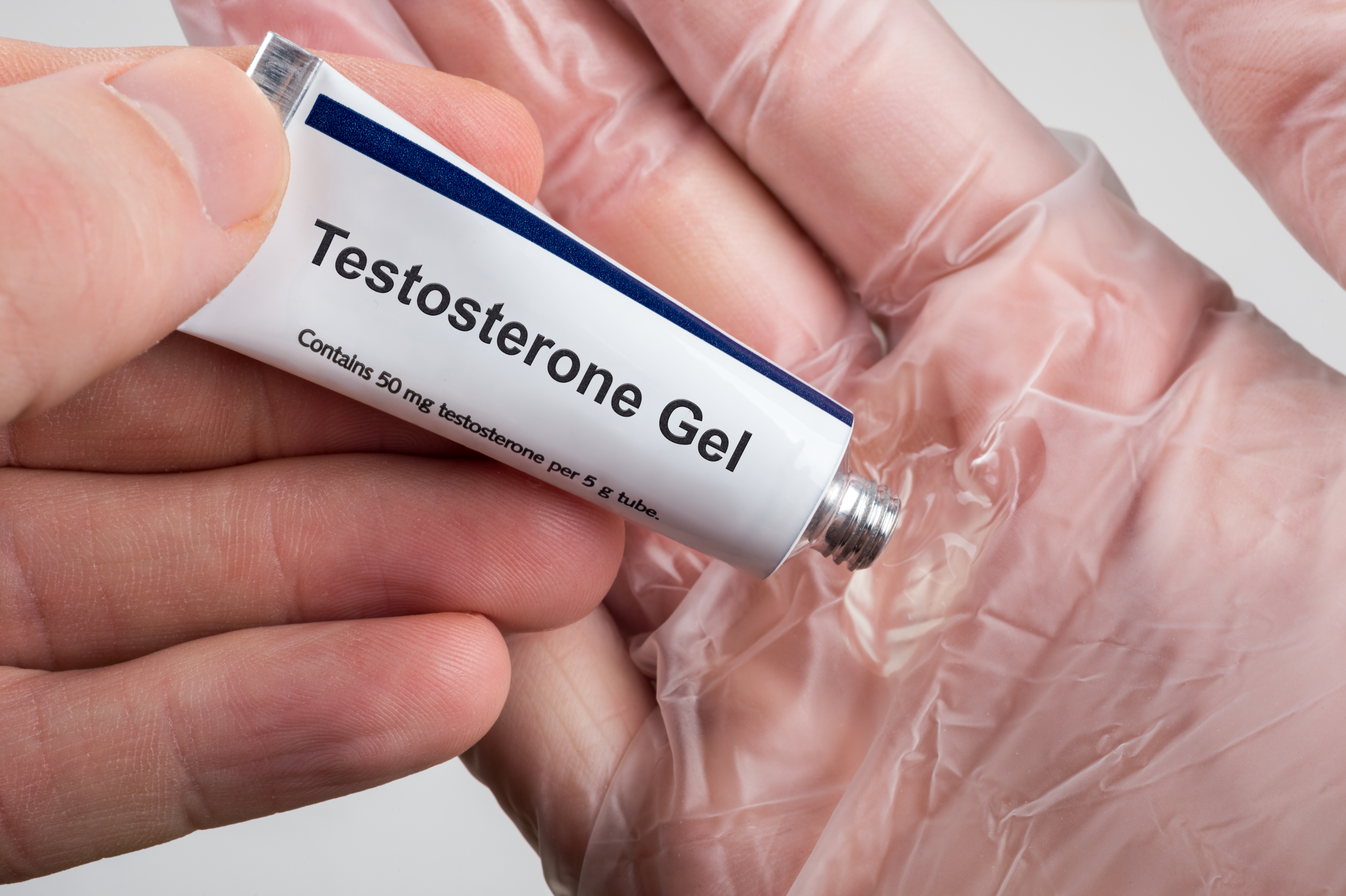Most people have heard of testosterone, but do you really understand what this important hormone does and why you need it? Let’s find out why testosterone is important, what can happen if you suffer from testosterone deficiency and most importantly, what you can do if you suffer from low testosterone.
What is testosterone?
Testosterone is a hormone that is found in both men and women. However, it occurs in men in much higher levels. The reason for this is that testosterone is the main androgen, making it a key hormone for the development of male characteristics.
One of the questions many people ask is whether testosterone is a steroid. While natural testosterone is a form of steroid because it is linked to increased muscle mass, it shouldn’t be confused with anabolic steroids, which are a synthetic version and injected into the body in a bid to boost muscle-building and physical performance by some athletes and body-builders. This is not recommended, can cause health problems and is a banned substance in regulated sporting events.
Synthetic testosterone is also used in hormone therapy for transgender individuals. More on that later.
What does testosterone do?
So, what is testosterone for? Well, it has different roles depending on which stage of life you are at. When a woman is pregnant, the Y chromosome prompts the development of the testiscles, which then produce testosterone to trigger growth of internal and external reproductive organs.
During puberty, testosterone levels increase and cause an increase in height, growth of body hair including pubic hair growth, enlargement of the penis, testes and prostate gland, sperm production and even a stronger sex drive.
Testosterone is just as important in adult males too. This male sex hormone is well known for boosting libido and playing a crucial role in normal sexual function. However, many people don’t realise that testosterone also plays a part in red blood cell production, keeping bones strong and maintaining muscle mass.
You could be forgiven for thinking that women don’t need testosterone, but if that were the case, why would their bodies make it? In fact, testosterone supports the growth, maintenance and repairs of female reproductive tissues, bone mass and contributes towards their libido.
How is testosterone produced in the body?
Testosterone is actually produced in several different parts of the body in men. The most well-known is the testes. However, for the testes to make testosterone, it relies on a part of your brain called the pituitary gland releasing two different hormones – follicle stimulating hormone or FSH, and luteinizing hormone or LH. FSH is responsible for sperm production, while LH stimulated testosterone production.
Around 95% of testosterone produced by adult men is made in the testes. The the other 5% is produced by the adrenal glands.
In women, the vast majority of testosterone is produced by the ovaries, with around 5% being made in the adrenal gland.

What are normal testosterone levels?
Testosterone levels fluctuate with age. However, for an adult male, 10 to 35 nano moles per litre (nmol/L) are considered normal levels of testosterone. However, testosterone deficiency is diagnosed based on your age as well as your T level.
Testosterone levels typically peak at around 20-25 years of age. After this, they start to decline at an average of 1-2% per year.
What causes low testosterone levels?
For the vast majority of men, testosterone decline is a natural and normal part of the ageing process. However, there are some factors which can accelerate deteriorating testosterone levels, giving men an increased risk of experiencing low testosterone. These include, but aren’t limited to:
- Side effects from certain medications, such as chemotherapy given for some types of cancers.
- Testicular injury, such as a trapped testicle or crush injury.
- Problems with the pituitary gland and hypothalamus which help to control hormone production.
- Low thyoid function.
- Obesity (excess body fat).
- Poorly-managed or uncontrolled Type 2 diabetes.
- Obstructive sleep apnoea.
- Chronic medical conditions, such as kidney dysfunction.
- HIV/AIDS.
Signs and symptoms of low testosterone
So, how do you know if you are experiencing low testosterone? Since most men will find that their testosterone levels will diminish slowly over a period of years, many don’t recognise changes in their life as being signs of testosterone deficiency. And as all men are unique, some might not experience any signs of low testosterone at all.
Some of the symptoms that indicate you could be experiencing low testosterone levels include:
- Loss of sex drive
- Sexual dysfunction, such as the inability to achieve or maintain an erection, or being unable to climax.
- Sleep problems, such as insomnia.
- Increased body fat and loss of muscle strength.
- Weakened bones.
- Low mood/depression.
- Problems with concentration.
Many men with low testosterone levels will also experience a low sperm count, but this can’t be known unless you are also having fertility testing.
It’s important to note that these are not always signs of low testosterone, and you should speak to your healthcare provider.
Can women experience low testosterone levels?
Although women only make testosterone in very small amounts, they too can experience testosterone deficiency. When their bodies don’t make enough testosterone, they can experience effects similar to those that occur in men with low testosterone levels. These include:
- Low sex drive/libido.
- Depleting bone strength, putting them more at risk of breaks and osteoporosis.
- Low energy and mood.
- Reduced vaginal lubrication.
- Thinning hair.
It’s also worth noting that higher-than-normal testosterone levels have also been linked with a common condition called Polycystic ovary syndrome or PCOS that can make it harder for a woman to conceive.
Diagnosing low testosterone
When you first visit your healthcare provider, they will probably ask you about the symptoms you have been experiencing. Symptoms of testosterone deficiency can vary between men, so finding out if you’ve been having issues with sexual function, decreased muscle mass, sleep problems and a low sex drive is only part of the puzzle. You’ll also need to have your testosterone levels tested.
The simplest way to diagnose low testosterone is with a blood test. Your provider will be able to assess the levels of testosterone in your blood sample and determine is you are suffering from testosterone deficiency.
Treatments for low testosterone
Having a low testosterone level isn’t uncommon. However, if you are also experiencing debilitating symptoms associated with testosterone deficiency, you might like to think about treatment to help counteract these effects.
Testosterone treatment also goes by other names, including testosterone replacement therapy, TRT and simply testosterone therapy. They all refer to the same thing – introducing artificial testosterone to your body to safely increase your testosterone level.
Testosterone replacement therapy takes a variety of forms, and you may need to try several to find the one that you feel most comfortable using. Currently, the different treatments include:
- Skin patches worn on the arm or upper body
- Mouth patches that stick to the upper gums
- Gels that see testosterone absorbed through the skin
- Injections of testosterone
- Testosterone pellets that are implanted into the soft tissues of your body
Testosterone replacement is generally considered to be the most effect way of restoring normal testosterone levels and counteracting negative effects of low testosterone such as low sex drive and problems with erectile function.

Are testosterone supplements safe?
Many people have concerns about taking supplements for their health, and testosterone replacement therapy is no exception. All medications cause side effects. However, for the majority of testosterone replacement therapy patients, side effects are minimal, if present at all. In most cases where a man does experience side effects associated with testosterone therapy, it is a result of taking incorrect dosage.
As we know, some people may be inclined to take too much testosterone in a bid to counteract their symptoms more quickly, or to achieve a fast and more dramatic transformation. However, taking too much testosterone has also been linked to an increase risk of a variety of different conditions. For this reason, we only ever recommend taking the amount of testosterone as prescribed by your provider.
Side effects that are associated with incorrect dosages of testosterone therapy include:
- acne
- disturbed breathing while sleeping (sleep apnoea)
- swelling of breast tissue or ankles
- high red blood cell count
- limiting sperm production or causing testicles to shrink
Testosterone therapy for transgender people
Testosterone supplements also play a role in gender-affirming treatment for transgender men. Trans men have biologically-female characteristics, but seek to replace these with the physical characteristics of an adult man instead. However, since they are unable to produce testosterone at the desired rate to do this naturally, treatment is needed to boost their levels of testosterone.
Female to male testosterone supplementation using testosterone can help trans men to align their physical features with their gender identity, enabling them to feel more comfortable in their own skin.

Some of the physical changes that the introduction of androgenic hormones like testosterone can help trans men achieve include:
- growth of body hair
- increased muscle mass
- redistribution of body fat so there is less on the hips and more on the abdomen
- broadening of the chest and shoulders
- changes to vocal chords to deepen their voice
Some trans men may also be able to achieve a reduction or even end to menstruation (periods) through testosterone treatment, although this isn’t guaranteed.
Final thoughts
Like other hormones, testosterone plays a very important role in the overall health and wellbeing of men and women alike. It’s very normal for testosterone levels to fall as men age, but if testosterone deficiency is causing you to experience unpleasant side effects, testosterone treatment could help you to feel more like yourself again. And, if you are a trans man seeking support to help you align more closely to your gender identity, testosterone treatment can support you on your journey.
While we've ensured that everything you read on the Health Centre is medically reviewed and approved, information presented here is not intended to be a substitute for professional medical advice, diagnosis, or treatment. It should never be relied upon for specific medical advice. If you have any questions or concerns, please talk to your doctor.




